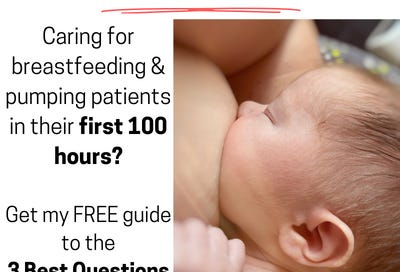The 3 Best Questions to Ask in the First 100 Hours of Breastfeeding
Have you seen my newest free resource, 3 Best Questions?
Here’s a link to download it in case you haven’t seen it yet.
These questions came from my never-ending quest to get the best stories out of my lactation clients. I need to know what they really think …
Keep reading with a 7-day free trial
Subscribe to Evolve Lactation with Christine Staricka to keep reading this post and get 7 days of free access to the full post archives.



